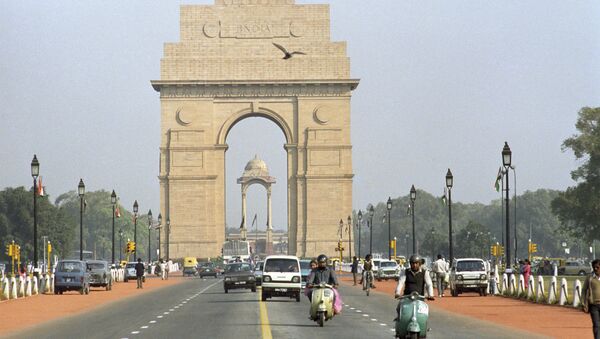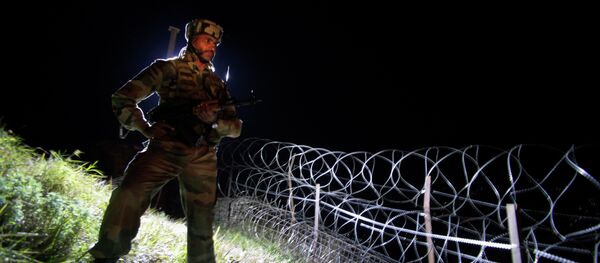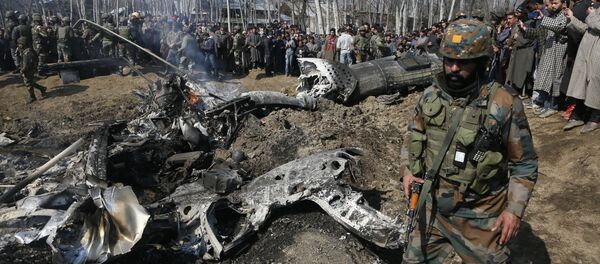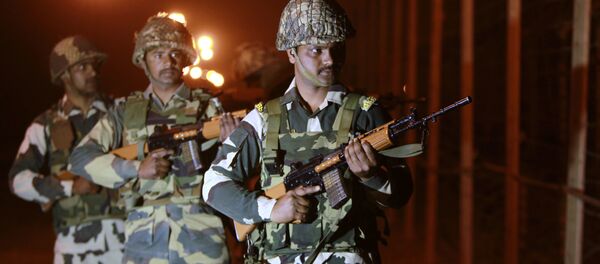The Indian Armed Forces will continue to hope that its expectations are met by the government of the day, notwithstanding the fact that previous dispensations of the last two decades have failed to consider most of their requirements, says an Indian defence expert.
Though defence reforms do take a long time to materialise, Retired Major General Dhruv Katoch, Director of the India Foundation is optimistic that many of the policy decisions in Prime Minister Narendra Modi's government "will fructify over the next decade".
Though it is difficult to put a value on the effectiveness of the Modi government in the defence realm it is important to highlight and acknowledge some of its achievements, Dhruv Katoch explained.
Dhruv Katoch: I do not agree with the statement that there has been too much rhetoric and too little substance. Some of the achievements are as follows:
- The sloth and inertia which was the hallmark of the Ministry of Defence during 2004-2014 is no longer there. Decision-making has been quick, responsible and robust. I would count that as a major policy achievement.
- The war reserves which were in a precarious state in 2014 are now in the process of being made healthier.
- There is greater movement in the government's "Make in India" programme effort.
- The establishment of two defence industrial corridors in the southern Indian state of Tamil Nadu and the northern Indian state of Uttar Pradesh will be major game changers in the years to come.
- Defence agreements are now more transparent and less susceptible to corruption.
Dhruv Katoch: The defence budget is in accordance with the threats faced. As of now, India does not see Pakistan as a viable conventional military threat, though it does continue to be a major threat in its ability to support terrorist activity against India. With respect to China, India has to ensure its territorial integrity along the border area. The criticality is the air space over the Tibetan Plateau. As of now, India feels itself capable of defending itself. We would of course need to ensure a measure of air dominance over the Tibetan Plateau, which would require a strong and capable Air Force. We would also need parity as far as cyber and space capabilities are concerned.
READ MORE: India Hunts for Night Sights for Detecting Enemy Tanks 1000m Away in the Dark
As the Indian economy strengthens, we could see more funds flowing into the defence sector. But he added that as of now, the challenge remains to make the best use of the limited resources to strengthen defence capability.
Sputnik: What should be the focus areas of the new incoming government insofar as the defence sector and armed forces are concerned?
Dhruv Katoch: The most important reform, that is required, is in the Ministry of Defence's (MoD) functioning. There is total bureaucratic and financial control over military affairs, where even the service chiefs have a limited say. This needs to change. The second area of focus must be on creating a strong defence industrial base. This must have a huge component of the private sector. Third, the public sector needs massive reforms. Inefficient units must be closed down or made to perform to the desired standards and fourth, defence acquisitions must be speeded up considerably. The focus must be "Make in India".
Dhruv Katoch: This remains a matter of concern. However, India's intelligence agencies are aware of the problem and many potential threats have been neutralised.
Sputnik: Do you think our policy on Kashmir is confused?
Dhruv Katoch: I think we are finally getting on to a more coherent policy on Kashmir. There was a tendency earlier to go soft on political parties which supported secessionist tendencies and also Pakistan was handled with kid gloves. There is a shift now. In my view, it is a matter of a few years at the most, until the Kashmir issue is resolved. There must, however, be no change in the methodology now being adapted to combat terrorism, which is four-pronged, namely (1) Eliminate the gun culture, (2) Deal with the separatists and their supporters with a strong hand, including prosecuting them in courts of law, (3) Choke their money supplies and (4) Address Pakistan firmly so that it ceases support to terrorist groups.
Views and opinions expressed in this article are those of the speaker and do not necessarily reflect Sputnik's position.






